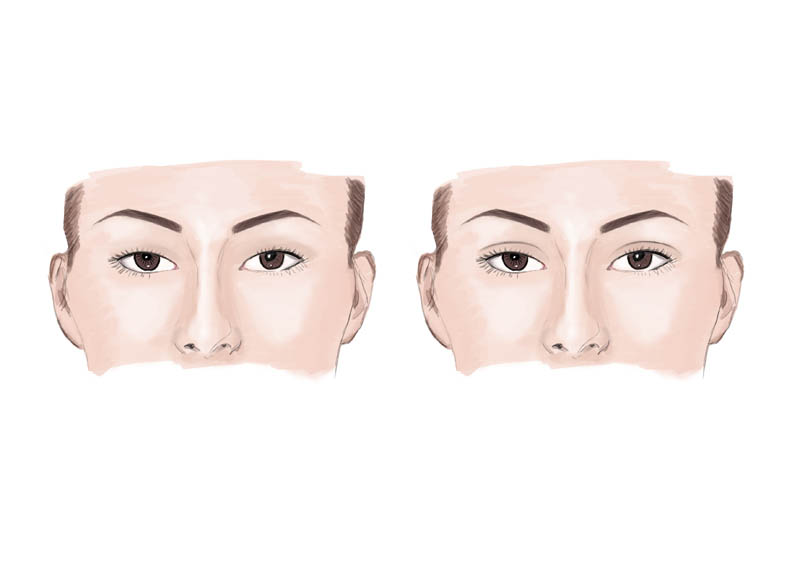
What is Eyelid Surgery?
Eyelid surgery, or blepharoplasty, is a surgical procedure to improve the appearance of the eyelids.
Surgery can be performed on the upper lids, lower lids or both.
Whether you want to improve your appearance or are experiencing functional problems with your eyelids, eyelid surgery can rejuvenate the area surrounding your eyes.
What Eyelid Surgery can treat
- Loose or sagging skin that creates folds or disturbs the natural contour of the upper eyelid, sometimes impairing vision
- Fatty deposits that appear as puffiness in the eyelids
- Bags under the eyes
- Drooping lower eyelids that reveal white below the iris
- Excess skin and fine wrinkles of the lower eyelid
Eyelid Surgery cost
Blepharoplasty costs can vary widely. The average cost of eyelid surgery is AU$2,500.
Many plastic surgeons offer patient financing plans to help cover blepharoplasty costs, so be sure to ask.
Eyelid Surgery costs may include:
- Surgeon's fee
- Hospital or surgical facility costs
- Anesthesia fees
- Prescriptions for medication
- Medical tests
Eyelid Surgery and Health Insurance
Most health insurance does not cover cosmetic surgery or its complications.
When eyelid surgery is performed to eliminate the redundant skin covering the eyelashes, it may be covered by insurance. Carefully review your policy.
Eyelid Surgery Candidates
Good candidates for eyelid surgery include:
- Healthy individuals with no medical conditions that can impair healing
- Individuals with a positive mind and realistic goals
- Individuals without serious eye conditions
Remember that the eyelids are part of the face. The appearance of a drooping upper lid may also be due to relaxation of the forehead skin and eyebrow. Sometimes stretching out of the upper eyelid muscle may cause a drooping eyelid. This is called eyelid ptosis and requires a different surgical treatment.
Your plastic surgeon will evaluate your facial anatomy thoroughly and will discuss what procedures might best remedy your concerns.
Eyelid Surgery Recovery
During your eyelid surgery recovery, lubricating ointment and cold compresses may be applied, and in some cases your eyes may be loosely covered with gauze, after your procedure is completed.
You will be given specific instructions that may include how to care for your eyes, medications to apply or take orally to aid healing and reduce the potential for infection, specific concerns to look for at the surgical site or in your overall health and when to follow-up with your plastic surgeon.
Initial healing may include some swelling, bruising, irritation, dry eyes and discomfort that can be controlled with medication, cold compresses and ointment. Irritation at the incision sites is also possible.
Be sure to ask your plastic surgeon specific questions about what you can expect during your individual recovery period.
- Where will I be taken after my surgery is complete?
- What medication will I be given or prescribed after surgery?
- Will I have dressings/bandages after surgery?
- When will they be removed?
- Are stitches removed? When?
- When can I resume normal activity and exercise?
- When do I return for follow-up care?
Eyelid surgery recovery & sun protection
You must practice diligent sun protection and use darkly tinted sunglasses until the healing process is fully complete.
Eyelid Surgery Result
The results of eyelid surgery will be long lasting. While there usually is little pain involved in this surgery, there can be swelling or bruising. Most patients are presentable to the public in 10-14 days. However, it may take a few months before final healing is completed.
While eyelid surgery can be expected to correct certain conditions permanently, you will continue to age naturally. Ongoing sun protection will help to maintain your results.
Although good results are expected from your procedure, there is no guarantee. In some situations, it may not be possible to achieve optimal results with a single surgical procedure and another surgery may be necessary.
Following your post-operative instructions is essential to the success of your surgery. It is important that the surgical incisions not be subjected to excessive force, abrasion or motion during the time of healing.
Your doctor will give you specific instructions on how to care for yourself.
